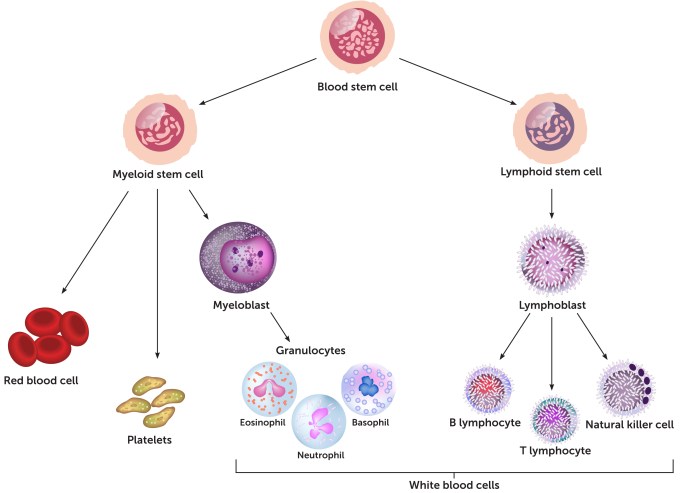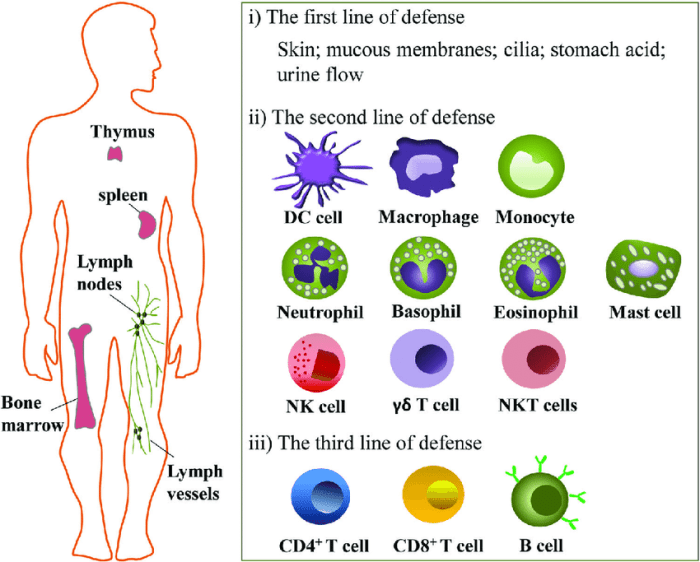Embark on an enlightening journey with our immune system video handout answer key, a comprehensive guide that unravels the complexities of our body’s defense mechanism. Delving into the fundamental concepts and intricate workings of the immune system, this resource empowers you with a profound understanding of how we ward off infections and maintain optimal health.
Our immune system stands as a guardian against a relentless barrage of pathogens, ensuring our well-being. This intricate network of cells, tissues, and organs works in harmony to identify and eliminate foreign invaders, safeguarding us from disease. By exploring the innate and adaptive immune responses, this handout unveils the remarkable strategies employed by our bodies to protect us.
Immune System Overview

The immune system is a complex network of cells, tissues, and organs that work together to protect the body from infections and diseases. It recognizes and attacks foreign substances, such as bacteria, viruses, and toxins, while leaving healthy cells unharmed.
The immune system is made up of two main types of cells: white blood cells and antibodies. White blood cells are specialized cells that can recognize and attack foreign substances. Antibodies are proteins that bind to specific foreign substances and neutralize them.
The immune system is essential for maintaining health. It protects the body from a wide range of infections and diseases, and it also helps to clear away damaged cells and debris.
Innate Immune System
The innate immune system is the first line of defense against infection. It is made up of cells and molecules that are always present in the body and that can recognize and attack foreign substances immediately.
The innate immune system includes:
- Phagocytes: Cells that engulf and destroy foreign substances.
- Natural killer cells: Cells that kill cells that are infected with viruses or that are otherwise damaged.
- Inflammation: A process that helps to recruit immune cells to the site of infection.
Adaptive Immune System
The adaptive immune system is the second line of defense against infection. It is made up of cells and molecules that are not always present in the body but that can be produced in response to a specific infection.
The adaptive immune system includes:
- T cells: Cells that recognize and kill cells that are infected with viruses or that are otherwise damaged.
- B cells: Cells that produce antibodies.
- Memory cells: Cells that remember previous infections and that can quickly produce antibodies or T cells if the same infection occurs again.
Immune System Regulation
The immune system is a complex system that must be tightly regulated to avoid excessive or inappropriate responses. This regulation is accomplished through a variety of mechanisms, including:
- Immune tolerance: The ability of the immune system to distinguish between self and non-self.
- Negative feedback loops: Mechanisms that help to turn off the immune response once the infection has been cleared.
Immune System and Health, Immune system video handout answer key
The immune system plays a vital role in protecting the body from infections and diseases. However, it can also contribute to chronic diseases, such as cancer and cardiovascular disease.
Maintaining a healthy immune system is essential for overall health. This can be done through a variety of lifestyle factors, such as:
- Diet: Eating a healthy diet that is rich in fruits, vegetables, and whole grains can help to boost the immune system.
- Exercise: Regular exercise can help to improve the immune system’s function.
- Sleep: Getting enough sleep is essential for a healthy immune system.
Essential Questionnaire: Immune System Video Handout Answer Key
What is the primary function of the immune system?
The immune system’s primary function is to protect the body from foreign invaders, such as bacteria, viruses, and other pathogens, and to eliminate damaged cells.
How does the innate immune system differ from the adaptive immune system?
The innate immune system provides immediate but non-specific defense mechanisms, while the adaptive immune system mounts a targeted and specific response to specific pathogens.
What is the role of antibodies in the immune response?
Antibodies are proteins produced by the adaptive immune system that recognize and bind to specific antigens, marking them for destruction.
